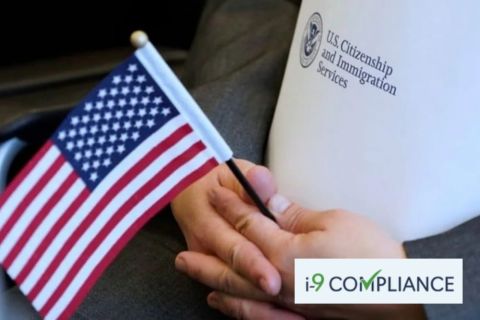USCIS Introduces Three Major New Initiatives

The USCIS stated at the end of March that they will be working on three new initiatives intended to reduce the delays and backlogs they have been experiencing in processing petitions and applications. These initiatives are:
- Establish time goals for the processing of applications and petitions.
- Make premium processing available for specific I-140 petitions as well as certain I-765 and I-539 applications.
- Develop a final temporary rule that will automatically extend some employment authorization documents.
The USCIS stated when introducing the three initiatives that, as a result of the COVID-19 pandemic and limited resources, they have had a large increase in cases and extended processing times. Because of this, the USCIS has been trying to find ways to decrease the pressure on its operations. The USCIS stated that it is determined to provide timely service as well as fair service to everyone they serve.
The three new initiatives are as follows.
Establish Time Goals for The Processing of Applications and Petitions
The USCIS is implementing internal cycle time goals to try and reduce backlogs. They believe if they meet these goals that processing times will improve. The USCIS’s goal is to “increase capacity, improve technology, and expand staffing.” The USCIS hopes to achieve these goals by the end of the 2023 fiscal year. With the new cycle times, for example, the USCIS believes officers should try to adjudicate non-premium I-129 petitions within a two-month period and I-539, I-765, and I-131 applications within a three month period.
- Make Premium Processing Available for Specific I-140 Petitions As Well As Certain I-765 and I-539 Applications
- The USCIS will expand premium processing eligibility for certain I-140 petitions as well as certain I-765 and I-539 applications.
- The USCIS will expand its premium processing option to the following petitions and applications.
I-140 petitions that were filed for national interest waiver (NIW) beneficiaries (EB-2) and multinational managers/executives (EB-1C). Premium processing for these petitions requires a $2,500 fee and has a 45 day processing time.
Specific I-765 applications that request employment authorization will be eligible for premium processing. Learn More
Premium processing for these applications requires a $1,500 fee and a 30 day processing time.
I-539 applications that are requesting a change of status to F-1, F-2, J-1, J-2, M-1, or M-2 nonimmigrant status or a change of status to or extension of stay in E-1, E-2, E-3, H-4, L-2, O-3, P-4, or R-2 nonimmigrant status. Premium processing for these applications requires a $1,750 fee and a 30 day processing time.
Develop a Final Temporary Rule That Will Automatically Extend Some Employment Authorization Documents
The USCIS intends to publish a temporary final rule that will be named the “Temporary Increase of the Automatic Extension Period of Employment Authorization Documentation for Certain Renewal Applicants.” This rule will expand the 180-day auto-extension for EADs for which the application for renewal has been properly filed before the expiration of the document, and that is in the same EAD category as the EAD card that has expired to 240 days or possibly 540 days. This should decrease work authorization gaps and thus the number of employees whose employment is terminated or suspended due to these gaps. This should reduce the number of requests for expedited processing, thus reducing workloads.
Takeaways
These initiatives are likely to increase the speed of processing and reduce the agency’s critical levels of backlog. As a result, they are likely to be a welcome addition for employers and employees alike.
Our I-9 Compliance. tool will help quickly verify your employment eligibility automatically.